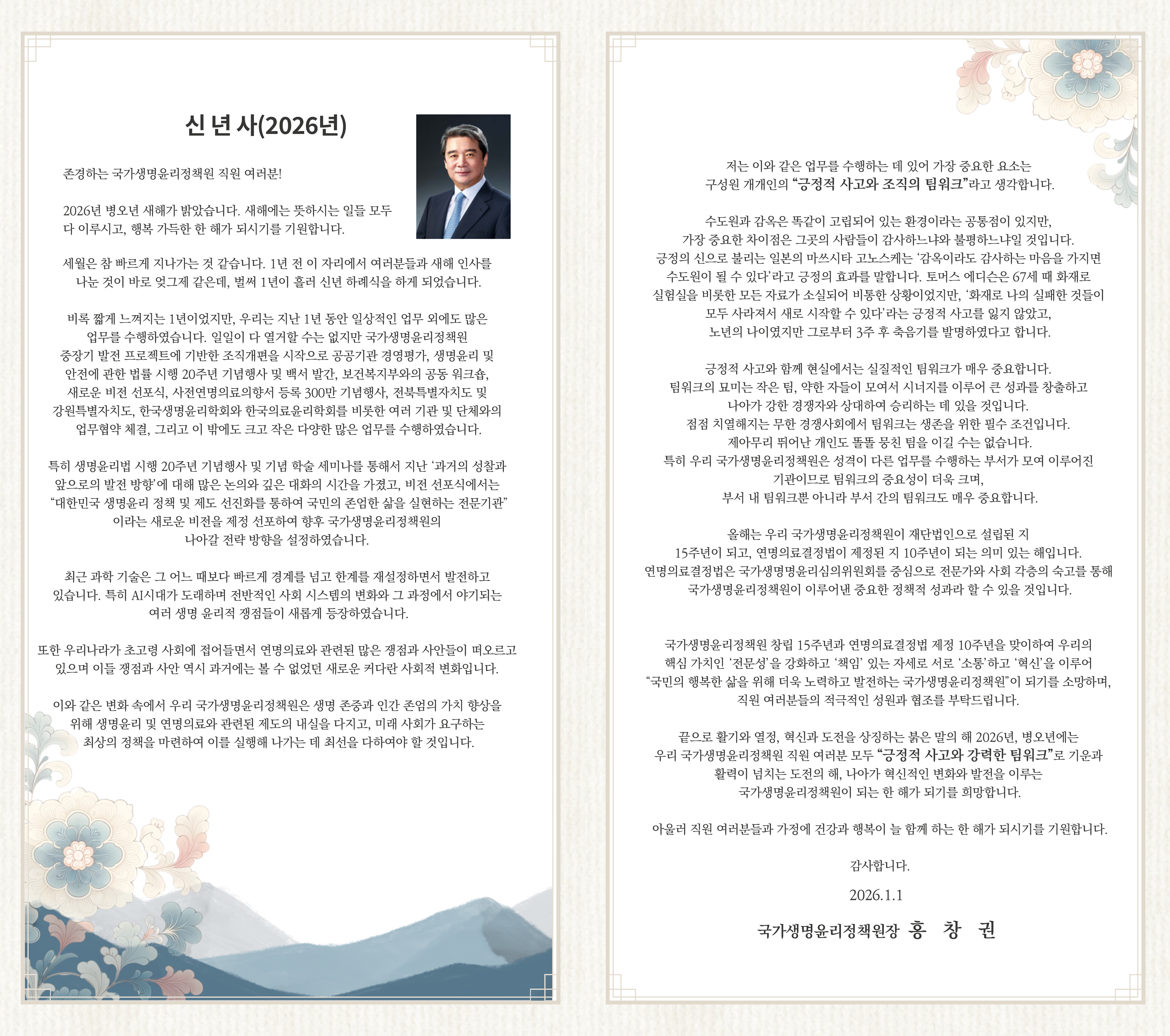A Study on the Implications and Major Issues of the Amended 「Act on Dissection and Preservation of Corpses」
"이 발간물은 (재)국가생명윤리정책원이 발행하는 학술지 「생명, 윤리와 정책」 제5권 제2호에 게재된 논문(개정 「시체 해부 및 보존 등에 관한 법률」의 함의와 주요 쟁점 연구)을 번역한 것입니다."
This paper is a translation of an article published in Volume 5, Number 2 of 『Bio, Ethics and Policy』.
A Study on the Implications and Major Issues of the Amended 「Act on Dissection and Preservation of Corpses」
Seunghyun Cha, Inkyoung Park, Sujin Baik
Abstract
The amended Act on Dissection and Preservation of Corpses was implemented on April 8, 2021. The biggest change is the shift of the research scope from “education and research in medicine” to “research on medicine and biomedicine.” In addition, it set up a system that allows parts of a corpse to be collected, preserved and provided for the purpose of research in the case of institutions, including not only medical schools but also general hospitals, by obtaining permission after fulfilling all requirements under the relevant laws. Indeed, the amended Corpse Dissection Act requires that plans to pursue research using a part(s) of a corpse be subject to deliberation by an Institutional Review Board (hereinafter, IRB) prior to the commencement of the research. However, the contents of research using a part(s) of a corpse can in fact be the same as research using human-derived materials in accordance with the Bioethics Act with the exception of the fact of survival of the donor who is the subject of the research, etc. Therefore, when the IRB deliberates on research using human-derived materials in accordance with Item 1 of Clause 3 of Article 10 of the Bioethics Act, deliberation details or standards other than issues on the safety of the research subjects, etc. cannot be different. In addition, it is required to obtain the informed consent of the bereaved family at the time of research using a part(s) of a corpse. The Bioethics Act, which deals with corresponding issues, emphasizes and obligates respect for voluntary consent based on the autonomy of the donor of human-derived materials. Although it is also appropriate for informed consent in accordance with the Corpse Dissection Act to be obtained based on the intention of the donor expressed during his/her life, it is disappointing that it relies on the consent of the bereaved family. Accordingly, the direction of clarifying that the self-decision-making right of the donor has the utmost priority in principle, and if this is not possible, acknowledging the consent of the bereaved family could be reviewed as an exception. Furthermore, the establishment of requisites for the approval of corpse dissection as well as the collection, preservation and provision of parts of corpses by the institution providing parts of corpses for approved research safely and ethically in accordance with this Act in this amendment of the Corpse Dissection Act could be deemed highly significant. Since the use of corpses and parts of corpses is expanding, it is also necessary to appropriately establish a means of respectable treatment of those who consented to donation and their bereaved families within the scope of not compromising their noble intentions. Therefore, appropriate systems will need to be put in place to support the deceased and their bereaved families with funeral arrangements that are in accordance with their wishes and dignity, rather than direct payments.
- 첨부파일
- PDF A Study on the Implications and Major Issues of the Amended 「Act on Dissection and Preservation of Corpses」.pdf (480.7KB / 다운로드 1,332)
